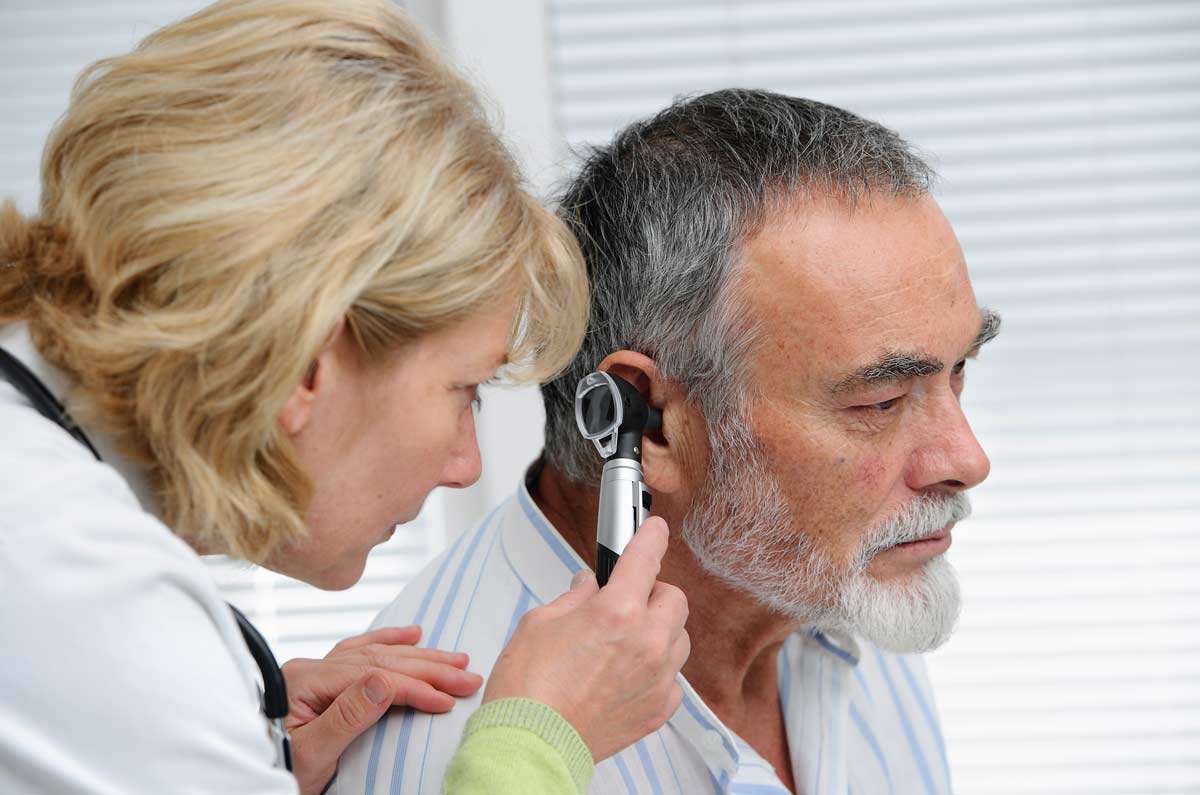How Hearing Loss is Linked to Dementia
February 07, 2018

You might think that a hearing loss is a fairly minor part of aging, but recent research has shown that the ability to hear plays a significant role in maintaining brain health.
Several major studies have shown that people with mild hearing impairment are nearly twice as likely to develop dementia, than those with normal hearing.
The risk of dementia increases to three times for those with moderate hearing loss and five times for those with severe impairment.
It's something for everyone to consider as nearly two-thirds of adults older than age 70 who suffer from hearing loss have an elevated risk of cognitive decline.
“The findings tying hearing loss with dementia make perfect sense,” says neurologist Deborah Ewing-Wilson, DO. “When a vital sense like hearing is compromised, the brain has to work harder to compensate and adjust. And as hearing loss grows more severe, the odds of cognitive impairment go up.”
What's Behind the Link
Factors that Dr. Ewing-Wilson says reinforce the correlation between hearing loss and cognitive decline are:
- Brain overload. The strain of decoding sounds due to a hearing loss can overwhelm the brain. That’s because you actually hear with your brain, not with your ears. “When a person has a hearing loss, the connections in the brain that respond to sound become reorganized and the brain has to work overtime to keep up,” she says.
- Isolation. “When you can’t hear well, it’s like visiting a foreign country and not understanding the language,” Dr. Ewing-Wilson says. “We know that people who feel disengaged or socially isolated are at a higher risk for developing dementia.”
- Brain atrophy. Older adults with hearing loss have less gray matter in the part of their brain that receives and processes sounds from the ears. “When someone has less brain power it affects their memory, problem-solving skills and overall thinking ability,” she says.
Seek Help for Hearing Loss
Even though hearing loss reduces quality of life, many people with hearing issues don’t seek help as soon as they should. That may be because hearing aids are costly, or because hearing loss develops slowly. Also, the brain’s ability to compensate and adjust to gradual hearing changes makes hearing loss difficult to recognize without professional testing.
This hesitancy to nip hearing loss at its early stages concerns Dr. Ewing-Wilson.
“If you are experiencing steady or profound hearing loss, you should be tested by a certified audiologist,” she says. “The sooner a person has a baseline hearing screening the better. Catching and treating a hearing deficiency early can slow, or stop, its progression.”
Dr. Ewing-Wilson says there isn’t a lot you can do to stop dementia once it sets in, but there are ways boomers and seniors can work toward protecting their brains.
“This includes eating a brain-healthy diet, which is similar to a Mediterranean diet, exercising regularly, not smoking, engaging in stimulating activities, spending time with friends and family and, of course, treating all visual and hearing deficits as soon as they appear,” Dr. Ewing-Wilson says.
Deborah Ewing-Wilson, DO is a neurologist at University Hospitals Portage Medical Center. You can request an appointment with Dr. Ewing-Wilson or any University Hospitals doctor online.
Tags: Aging Brain, Alzheimer’s, Baby Boomers, Hearing Loss, Seniors


